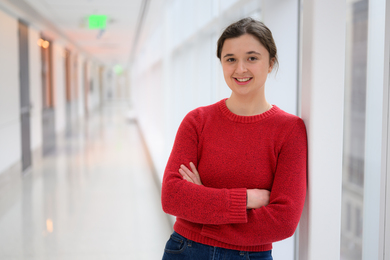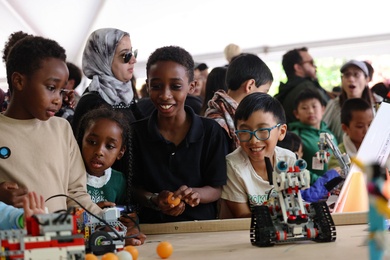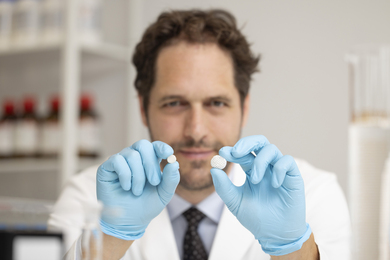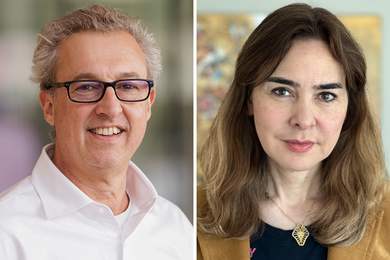College campuses have long played a vital role in our society as educators of future generations, incubators for innovation and economic development, and partners with the communities we serve. As MIT celebrates a century in Cambridge, Massachusetts, leaders in campus design and educational innovation will convene in Kresge Auditorium on March 30 and 31 to share ideas on the past, present, and future of campus architecture and design, as well as MIT’s role as an innovative campus. Registration is open and there is no fee for MIT faculty, staff, and students; lunch is included on both days. In each session, participants will have opportunities for Q&A with the speakers.
Chancellor Cynthia Barnhart will open day 1 of the symposium at 1 p.m. on March 30, followed by a session chaired by School of Architecture and Planning (SA+P) Dean Hashim Sarkis and focusing on campus architecture and design, including the story of MIT’s Main Group and its influence on other campuses during the past 100 years. Topics include campus planning and learning spaces, with insight into the design of two newer campuses: the Singapore University of Technology and Design and the Skolkovo Institute of Science and Technology.
Speakers include:
- Mark Jarzombek, professor of the history and theory of architecture at MIT;
- Hilary Ballon, professor of urban studies and architecture at New York University and deputy vice chancellor at NYU Abu Dhabi;
- David Adjaye, principal at Adjaye Associates, London and New York;
- Christian Veddeler, director and senior architect at UNStudio; and
- Julie Newman, director of the Office of Sustainability and lecturer in the Department of Urban Studies and Planning at MIT.
Attention turns next to the innovation districts that are growing in cities worldwide, thanks to partnerships between universities, government, and industry. Former SA+P dean and professor of architecture Adèle Naudé Santos chairs a session comprising reflections on incubating urban innovation spaces such as Kendall Square (Cambridge, Massachusetts) and Roosevelt Island (New York, New York).
Speakers include:
- Israel Ruiz, executive vice president and treasurer of MIT;
- Katie Stebbins, assistant secretary of technology, innovation and entrepreneurship for the Commonwealth of Massachusetts;
- Roger Duffy, design partner at Skidmore, Owings and Merrill LLP, New York;
- Marion Weiss, Graham Chair Professor of Architecture at the University of Pennsylvania and cofounder of WEISS/MANFREDI Architecture/Landscape/Urbanism, New York; and
- Carlo Ratti, professor of the practice and director of the SENSEable City Lab at MIT.
Following a welcome to day 2 of the symposium at 9:30 a.m. on March 31 by Provost Martin Schmidt, participants will hear reports from speakers at the front lines of experiments in education at the university, secondary, and childhood levels. Dean for Graduate Education Christine Ortiz moderates a panel discussion with:
- Thomas Magnanti, president of the Singapore University of Technology and Design and Institute Professor at MIT;
- Mitchel Resnick, LEGO Papert Professor of Learning Research at the MIT Media Lab;
- Saeed Arida, founder and chief excitement officer of NuVu Studio.
The final session looks to the future of online learning, a future to be determined by our comprehension of its challenges and opportunities. From lessons learned to ongoing data-driven educational experiments, how are we thinking differently today — now that we know what we know? Panel discussion includes:
- Sanjay Sarma, vice president for open learning at MIT;
- Susan Singer, division director for the Division of Undergraduate Education at the National Science Foundation and the Laurence McKinley Gould Professor, in biology and cognitive science at Carleton College;
- Paul LeBlanc, President, Southern New Hampshire University
- Anant Agarwal, CEO, edX; Professor of Electrical Engineering and Computer Science, MIT
The Designing Places for Inventing the Future: The Campus Then, Now, Next symposium is free (with registration) to all MIT faculty, staff, and students, and open to the public, with one-day ($20) and two-day ($40) passes available.
The symposium is part of MIT2016: Celebrating a Century in Cambridge, a program running Feb. 29 to June 4 as MIT commemorates 100 years at its “new” campus. Registration is also open for the April 12 symposium, Beyond 2016: MIT’s Frontiers of the Future.










